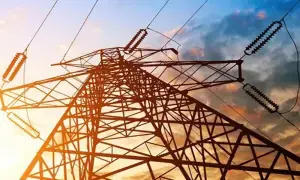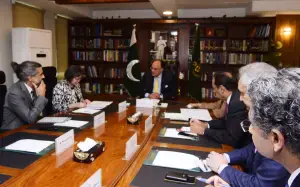Govt approves massive hike in electricity prices
2 min readThe Pakistani government has approved a significant increase in electricity prices, impacting millions of consumers, particularly those in the lower income brackets. This move, driven by the International Monetary Fund’s (IMF) demands for a bailout package, has sparked outrage and protests.
The new rates, effective from July, see a per-unit price increase of up to Rs5.72%.
This translates to an additional burden of hundreds of billions on consumers this fiscal year. This is the largest percentage increase in electricity prices for low-income groups in Pakistan’s history.
According to the power division, the average electricity price has increased by Rs4.55 per unit, pushing the national average uniform rate from Rs29 to Rs35.50 per unit. This translates to a significant price hike for consumers across the board.
The government has implemented a tiered system, with the most significant increases affecting those consuming 1 to 100 units per month. This segment, primarily consisting of the poorest households, faces a hike of Rs3.95.
Can 300 units of electricity really be provided for free?
NEPRA grills power distribution companies over proposed tariff hike
NEPRA introduces heavy markup for consumers paying bills in installments
Furthermore, the government has introduced fixed monthly charges ranging from Rs200 to Rs1,000 per unit for residential consumers, adding another layer of financial strain.
The decision to raise electricity prices was made through a circulation process, bypassing open discussion and debate in the federal cabinet. This lack of transparency has fueled public anger and accusations of prioritizing IMF demands over the welfare of citizens.
The government’s justification for the price hike centers around addressing decades of mismanagement and flawed energy policies. However, critics argue that the burden should not fall disproportionately on the poorest segments of society.
The new industrial tariff, despite the government’s initial promise of a lower rate, has also been increased to Rs37.83 per unit, aligning with the IMF’s requirements.
For the latest news, follow us on Twitter @Aaj_Urdu. We are also on Facebook, Instagram and YouTube.


























Comments are closed on this story.